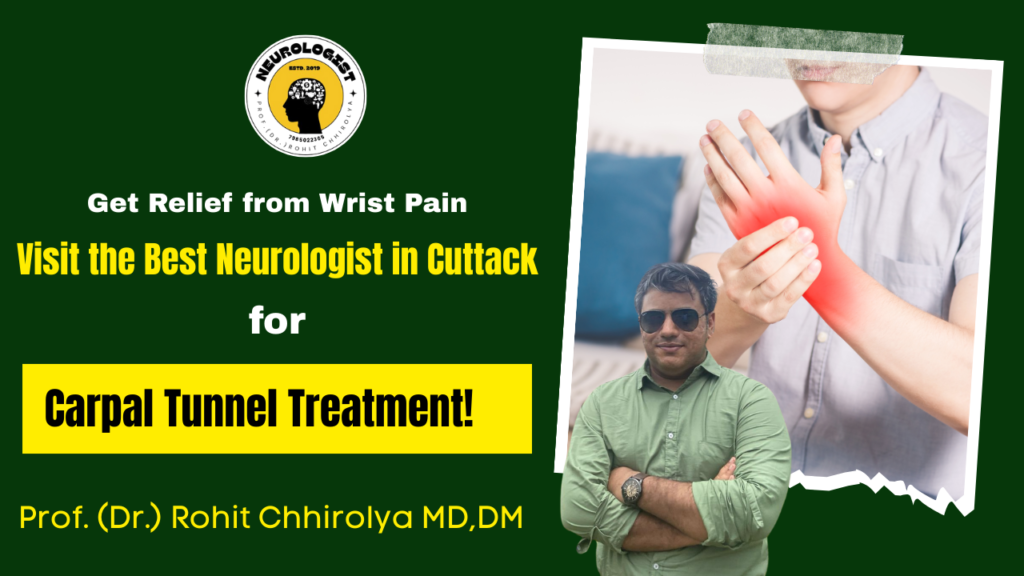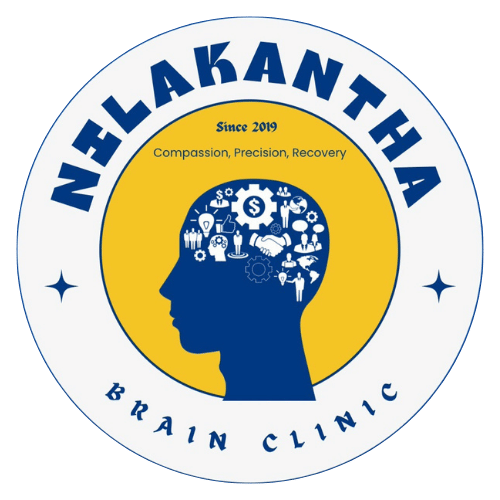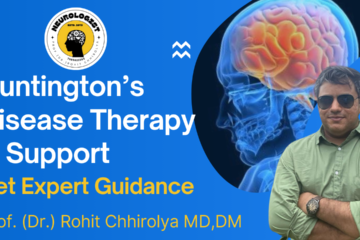Carpal tunnel syndrome (CTS) is one of the most common peripheral nerve disorders, affecting millions globally. Characterized by numbness, tingling, and weakness in the hand, CTS often results from repetitive motions or underlying health conditions. In Cuttack, early diagnosis and treatment by a top neurologist in Cuttack can prevent permanent nerve damage. This guide explores CTS causes, treatments, and how to find the best neurology specialist in Cuttack for tailored care.

What is Carpal Tunnel Syndrome?
Carpal tunnel syndrome occurs when the median nerve, which runs from the forearm to the palm, becomes compressed at the wrist. This nerve controls sensation and movement in the thumb and first three fingers. Compression leads to inflammation, pain, and functional impairment.
Risk Factors:
- Occupational Hazards: Typists, assembly line workers, and musicians.
- Health Conditions: Diabetes, obesity, rheumatoid arthritis.
- Lifestyle Factors: Prolonged wrist flexion, smoking, or excessive salt intake.
Did You Know?
- 60% of office workers report CTS symptoms due to repetitive keyboard use.
- Women are 3x more likely to develop CTS than men.
Symptoms & Diagnosis
Common Symptoms
- Numbness/Tingling: Primarily in the thumb, index, and middle fingers.
- Weakness: Difficulty gripping objects or dropping items frequently.
- Nighttime Discomfort: Pain or tingling that disrupts sleep.
- Radiating Pain: May extend up the arm to the shoulder.
When to See a Neurologist
If symptoms persist for over 2 weeks or worsen, consult a neuro doctor near me for:
- Physical Exam: Tinel’s sign (tapping the wrist) and Phalen’s maneuver (wrist flexion test).
- Electrodiagnostic Tests:
- Nerve Conduction Study (NCS): Measures median nerve signal speed.
- Electromyography (EMG): Assesses muscle activity.
Advanced CTS Diagnostics at Nilakantha Brain Clinic
Treatment Options
1. Non-Surgical Treatments
- Wrist Splints: Worn at night to reduce pressure on the median nerve.
- Medications: NSAIDs (ibuprofen) or corticosteroid injections for inflammation.
- Physical Therapy: Stretching exercises to improve flexibility.
2. Surgical Treatments
- Endoscopic Surgery: Minimally invasive procedure to cut the transverse carpal ligament.
- Open Surgery: Larger incision for severe cases.
Recovery Time:
- Non-surgical: 4–6 weeks with splints.
- Surgical: 6–12 weeks for full recovery.
Expert Tip: The best neurologist doctor in Cuttack will recommend surgery only if conservative methods fail.
Prevention Strategies
- Ergonomic Adjustments: Use wrist-friendly keyboards and take breaks during repetitive tasks.
- Exercises: Wrist stretches and nerve-gliding exercises.
- Lifestyle Modifications: Manage weight, quit smoking, and reduce sodium intake.
Finding the Best Neurologist in Cuttack
Choosing the right specialist ensures accurate diagnosis and effective treatment. Here’s what to prioritize:
1. Credentials & Experience
- Look for a DM (Neurology) degree and specialization in peripheral nerve disorders.
- Dr. Rohit Chhirolya, a top neurologist in Cuttack, boasts 15+ years of experience treating CTS and complex neuropathies.
2. Patient Reviews
- Check Google, Practo, or Facebook for testimonials.
- Nilakantha Brain Clinic is rated 4.9/5 for patient-centric care.
3. Advanced Facilities
- Ensure the clinic offers NCS, EMG, and ultrasound-guided treatments.
Cuttack Neurology Doctor List
- Dr. Rohit Chhirolya, DM (Neurology)
- Clinic: Nilakantha Brain Clinic
- Expertise: CTS, diabetic neuropathy, and autoimmune nerve disorders.
- Address: Cuttack, Odisha
- Contact: 📞 7985022365 | 🌐 Book Online
Follow Dr. Chhirolya’s CTS management tips on Instagram.
- Watch surgical success stories on YouTube.
FAQs
Q1: Can CTS recur after surgery?
A: Recurrence is rare (5–10% cases) if post-op guidelines from your neuro doctor in Cuttack are followed.
Q2: Are there side effects of corticosteroid injections?
A: Temporary pain or skin discoloration may occur. Avoid repeated injections without consulting the best neurology specialist in Cuttack.
Q3: How much does CTS treatment cost in Cuttack?
A: Non-surgical: ₹3,000–₹10,000/month. Surgery: ₹50,000–₹1,00,000. Nilakantha offers EMI options.
Q4: Can yoga cure CTS?
A: Yoga improves flexibility but isn’t a standalone cure. Combine it with treatments from the best neurologist near me.
Q5: How to find a reliable “neuro doctor near me”?
A: Search for “cuttack neurology doctor list” or visit Nilakantha Brain Clinic.
Q6: Can carpal tunnel syndrome affect both hands at the same time?
A: Yes! Bilateral CTS is common, especially in individuals with underlying conditions like diabetes or thyroid disorders. A neuro doctor in Cuttack can evaluate both hands and recommend tailored treatments.
Q7: Are there specific exercises to prevent carpal tunnel syndrome?
A: Yes! Wrist stretches, finger extensions, and nerve-gliding exercises improve flexibility. Check Dr. Rohit Chhirolya’s YouTube for guided routines.
Q8: Can ergonomic keyboards or mouse pads help with CTS?
A: Absolutely. Ergonomic tools reduce wrist strain during prolonged computer use. Pair them with regular breaks for optimal results.
Q9: Does pregnancy increase the risk of carpal tunnel syndrome?
A: Yes! Hormonal changes and fluid retention during pregnancy compress the median nerve. Symptoms often resolve postpartum, but consult the best neurology specialist in Cuttack if pain persists.
Q10: Can vitamin deficiencies cause carpal tunnel syndrome?
A: Vitamin B6 deficiency is linked to nerve dysfunction. Supplements may help, but always consult your neuro doctor near me before starting any regimen.
Q11: How long does it take to recover after carpal tunnel surgery?
A: Most patients resume light activities in 2–4 weeks. Full recovery (grip strength restoration) takes 6–12 weeks. Post-op care from the best neurologist in Cuttack ensures smooth healing.
Q12: Are there alternatives to surgery for severe CTS?
A: Ultrasound-guided steroid injections or platelet-rich plasma (PRP) therapy may delay surgery. Discuss options with your top neurologist in Cuttack.
Q13: Why do CTS symptoms worsen at night?
A: Fluid redistribution during sleep increases pressure on the median nerve. Wearing a wrist splint at night can alleviate symptoms.
Q14: Can carpal tunnel syndrome recur after successful treatment?
A: Recurrence is rare (5–10%) but possible if underlying causes (e.g., repetitive strain) aren’t addressed. Regular follow-ups with your neuro doctor in Cuttack minimize risks.
Q15: Is carpal tunnel syndrome linked to arthritis?
A: While distinct, rheumatoid arthritis can inflame the wrist, worsening CTS. A neurology doctor in Cuttack can differentiate and treat both conditions.
Q16: Can weight loss improve CTS symptoms?
A: Yes! Obesity increases inflammation and pressure on nerves. Weight management, combined with therapies from the best neurologist doctor in Cuttack, enhances outcomes.
Prioritize Your Hand Health Today
Carpal tunnel syndrome can severely impact daily life, but timely care from the best neurologist in Cuttack ensures lasting relief. Dr. Rohit Chhirolya and his team at Nilakantha Brain Clinic combine cutting-edge technology with compassionate care to address CTS and other neuropathies.
Act Now!
📞 Call 7985022365 for immediate consultation.
🌐 Visit Nilakantha Brain Clinic to book your slot.
Stay Informed:
- Join health discussions on Facebook.



